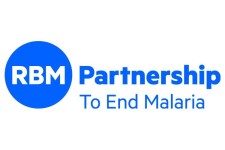Roll Back Malaria Partnership (RBM)

The RBM Partnership to End Malaria is the largest global platform for coordinated action towards a world free from malaria.
It is comprised of over 500 partners - from community health worker groups and researchers developing new tools, to malaria-affected and donor countries, businesses and international organisations.
Since 2000, the world has made unprecedented progress against malaria, saving nearly 10.6 million lives, and is lauded as one of the greatest public health successes in history. Today, more countries are malaria-free than ever before, and 47 countries report less than 10,000 malaria cases—showing that with determination, prioritization and the right tools, elimination is indeed possible.
However, we are at a critical juncture. Half the world still lives at risk from this preventable, treatable disease, which costs a child’s life every two minutes. And for the first time in over a decade, we are seeing progress stall putting years of investment in jeopardy. If we do not seize the moment now, our hard-won gains against malaria will be lost.
With renewed focus and commitment, we can be the generation to end one of the oldest and deadliest diseases in human history.
To achieve its vision of a malaria-free world, the RBM Partnership works in alignment with WHO’s Global Technical Strategy for Malaria 2016-2030 targets. In addition, RBM’s Action and Investment to defeat Malaria 2016 – 2030 (AIM) positions malaria in the wider development agenda. It illustrates how reducing and eliminating malaria creates healthier, more equitable and prosperous societies, and promotes a broadly inclusive and multisectoral response.
As the largest global multi-stakeholder platform to fight malaria, the Partnership is best suited to work across sectors and regions, both nationally and globally, in the spirit of “achieving more, together”, avoiding duplication and fragmentation and ensuring optimal use of resources. Its main role is to align and support malaria-affected countries, donors and Partners towards achieving agreed malaria control and elimination targets.
The core functions of the Partnership are:
- convene partners focused on this common cause;
- coordinate partners to maximise alignment, facilitate cooperation and ensure that common challenges are addressed cooperatively;
- mobilise resources by identifying resource requirements and creating humanitarian and business cases to support the mobilisation of resources;
- facilitate communication, identify and address opportunities and challenges by engaging Partners, sharing experience and best practice; and
- provide mission-critical support to malaria affected countries and regions, supporting the critical enablers required to enhance political will and providing targeted support where it is needed most.
- Partnership, alliance, network or initiative
- Infectious disease
- Tropical disease
- Community mobilization
- Mainly international

